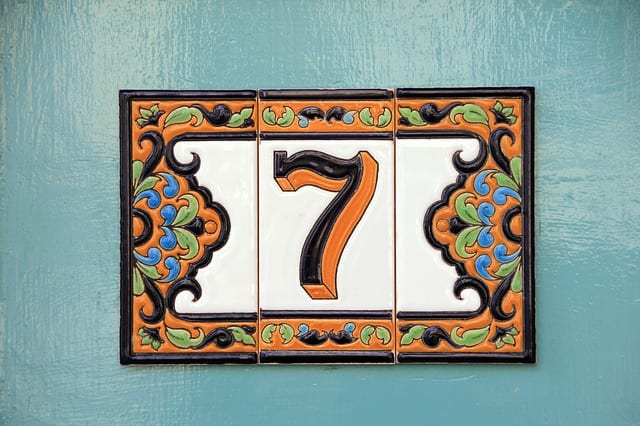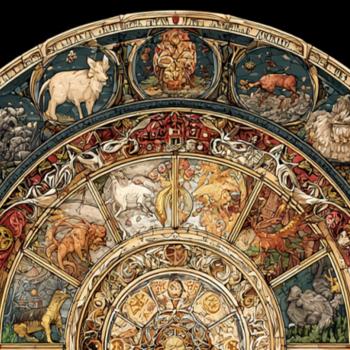
Most Christians break one of the biggest rules of Biblical interpretation: Basing all of your theology on a single verse of scripture.
That verse is Hebrews 9:22: “In fact, the law requires that nearly everything be cleansed with blood, and without the shedding of blood there is no forgiveness.”
Many take this to mean that God’s requirement for forgiveness is the shedding of blood. But, before we address that error, let’s take a look at that assumption. Does the Scripture support this notion? Is it true that God won’t forgive without the shedding of blood?
Not exactly.
As my friend Santo Calarco points out, there are seven examples from the OT where sins are forgiven WITHOUT the shedding of blood:
“Blood not always required for forgiveness. Atonement and forgiveness could be granted on the basis of:
- Application of oil (Lev 14:29)
- Burning flour (Lev 5:11-13)
- Burning incense (Num 16:41-50)
- Payment of money (Exod 30:11-16)
- Gifts of jewelry (Num 31:48-54)
- The release of a live animal [the scapegoat] (Lev 16:10)
- Simple appeals to God through words/prayers (Exod 32:30)”
In addition, the Psalms largely portray God’s forgiveness in the absence of sacrificial or atonement language. (See Psalm 32; 51; 103)
We also have a quite famous example in the OT where forgiveness was extended to the entire Nation of Israel based solely on prayer and repentance:
“If my people who are called by my name humble themselves, pray, seek my face, and turn from their wicked ways, then I will hear from heaven, and will forgive their sin and heal their land.” (2 Chronicles 7:14)
So, sin offerings are not required to be blood sacrifices. We even have an example where the poor are allowed to offer a grain offering if they cannot afford an animal to sacrifice – and forgiveness is still granted, without the bloodshed.(See Leviticus 5:11-13)
Therefore, our default understanding of Hebrews 9:22 is seriously in question.
So, if it doesn’t mean that God requires blood for the forgiveness of sins, then…what does it mean?
Well, to begin with, Hebrews 9:22 is talking about what was required under the OT Law. In fact, the entire book of Hebrews is all about contrasting the Old Covenant Law with the “better covenant” of Love and Grace [the New Covenant].
Therefore, the author of Hebrews is in the process of contrasting “what was wrong with the first covenant” [Heb. 8:7] with what we have now received under Christ. This point about what was necessary “under the Law” is intended to be a critique, not an affirmation, of that system.
The Old Testament itself isn’t univocal on the question of blood sacrifice, by the way. Moses says it is required, but then Isaiah and Hosea and King David all disagree and say that such a thing never entered God’s mind and that God does not delight in the blood of bulls and goats, and that what God cares about is the spiritual condition of the human heart. [See Psalm 50:8; Hosea 6:6; Psalm 51:16; Psalm 40:6–8; Isaiah 1:11–31; Jeremiah 7:21–23]
In fact, if we go back to Hebrews and read just one more chapter, we’ll notice this:
“For it is impossible for the blood of bulls and goats to take away sins. Consequently, when Christ came into
the world, he said, “Sacrifices and offerings you have not desired, but a body have you prepared for me;
in burnt offerings and sin offerings you have taken no pleasure.
When he said above, “You have neither desired nor taken pleasure in sacrifices and offerings and burnt offerings
and sin offerings” (these are offered according to the law), then he added, “Behold, I have come to do your will.”
He does away with the first in order to establish the second. And by that will we have been sanctified through
the offering of the body of Jesus Christ once for all.” [Hebrews 10:4-10]
So, if we break that down we’ll notice a few things:
*The blood sacrifices never took away anyone’s sins
*Christ affirms that God did not desire sacrifices and offerings
*God doesn’t desire burnt or sin offerings at all [!]
*Christ came to do God’s will [and that will was NOT about blood, or sacrifices or sin offerings]
*The sacrifices, sin offerings, etc. were “offered according to the OT law” [the defective covenant]
*Christ did away with the first covenant [OT] in order to establish the “better covenant” [NT]
*When Christ submitted to the will of God, it was to fulfill the Law and the Prophets [thereby making them obsolete]
*Because of this, we are now sanctified “through the offering of the body of Jesus Christ”
Ok, now before you pounce on that last point, let’s clarify a few things:
This ENTIRE passage is trying to affirm that God did NOT desire or require sin offerings. So, whatever this last point means, it does NOT mean that the “offering of the body of Jesus Christ” was about his blood being shed to cover our sins.
In fact, the passage doesn’t suggest this at all.
What IS affirmed is that the obedience of Christ to the will of the Father is what fulfilled every requirement of the Law for us.
The “offering of the body of Jesus Christ” is expressed in his Incarnation and in his obedience to the Father’s will [which, once again, was NOT about sin offerings or blood sacrifices].
At this point many will ask: “But, didn’t Jesus need to die? Didn’t Jesus come to die?”
Well, embedded in the equation of the Incarnation is the fact that Christ gave up his immortality to take on mortality. [See Phil. 2:5-11]
Once Christ took on mortality, it was inevitable that his flesh would die – one way or the other.
Did God require that his death be at our hands? No.
Did God require that Christ would suffer? No.
But, did God know that we would inevitably treat his Son this way? Yes.
So, the manner of Christ’s death was our decision. It was us who murdered the Son of God. We rejected the Christ. We nailed him to the cross.
God could foresee this would happen, but God certainly did not require it or demand it. [See Hebrews 10:4-10 again for reference]
The forgiveness of our sins wasn’t tied to any virgin blood sacrifice. That’s paganism.
The reality is that, once Christ took on mortality, it was inevitable that he would die and enter the grave. At this point, death would have been transformed from the inside out by the Resurrection power of Christ.
Christ came to abolish the law of sin and death. He conquered the grave. Death has no more power or sting.
Everyone is now, once and for all, set free from the power of death and sin.
This could have been accomplished whether Christ was accepted or rejected.
So, this “offering of the body of Jesus Christ” was more about his obedience to the Father’s will and not at all about blood, sacrifice or offerings for our sins.
Remember: “God was, in Christ, not counting our sins against us, but reconciling the World to Himself.” [2 Cor. 5:19]
Jesus forgave without bloodshed.
The Father forgives us without requiring any sacrifice for sins.
It’s time for us to abandon the ancient pagan ideas about a wrathful God who requires a virgin sacrifice before extending forgiveness to His children.
Jesus came to abolish that nonsense.
Some of us are still trying to wrap our minds around that one.
**
Need help going through your Spiritual Deconstruction? Meet me at Square 1. This 90 Day Online Course is designed to help you go from Deconstruction to Reconstruction. Classes start Jan. 13, 2020. Half-Price seats are available until Christmas Day, 2019. REGISTER TODAY>
Want Keith to come speak at your church or in your home town? Send an invitation HERE













